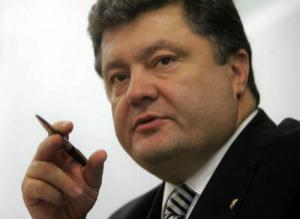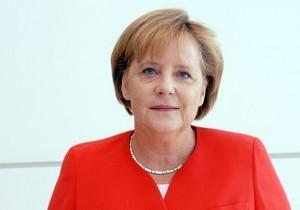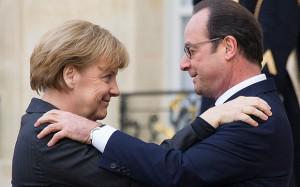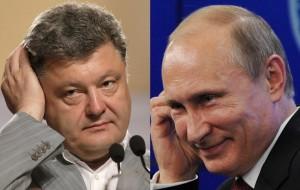Ukrainian crisis: Putin holds most of the cards
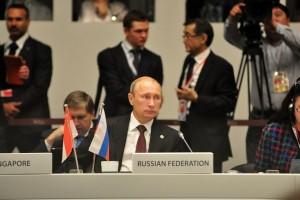
Reports out of Milan regarding last Friday’s much anticipated meeting between Russian president Vladimir Putin and Ukrainian president Petro Poroshenko indicate that little progress has been made toward resolving the nearly yearlong Ukraine crisis. This, given the broader political currents at play in Europe, is unsurprising.
To begin with, Mr. Poroshenko has, for all intents and purposes, lost the military battle over the Donbas in resounding fashion. While his bloc leads in the polls ahead of next Sunday’s parliamentary election, Poroshenko faces a number of other challenges, not least of which is a collapsing economy and a burgeoning populist backlash over the government’s handling of the crisis.
So what we saw play out in Milan is more or less a repeat of the last Putin/Poroshenko meeting that took place in Minsk on August 26, because the same logic applies. Mr. Putin is always going to be the party—regardless of whether he is facing sanctions or a chorus of international condemnation—who will be playing the stronger hand in negotiations with Ukraine. Yet as we approach November, his hand is even stronger, as the crisis begins to transform from a military confrontation between Russia and Ukraine into a confrontation between Ukraine and Europe over the supply of Russian natural gas. Ukraine serves as the transit point for 50 percent of EU-bound Russian LNG, and Ukraine’s siphoning off of LNG bound for southeastern Europe, which led to Russia cutting off the supply in January 2006 and January 2009, is still fresh in the minds of European leaders.
There are already signs of tension between Ukraine and what had been its most enthusiastic supporter in Europe—Poland. Because of the war in the east, Ukraine, while normally a coal exporter, will by some estimates now need to import between 3-4 million tons of coal as winter approaches. In spite of the war, Ukraine is continuing to import large amounts of Russian coal while Kiev only evinces an interest in Polish coal, according to Poland’s economic minister, when “it is free.” Meanwhile a dispute over Kiev’s ban, ostensibly over health concerns, of Polish meat continues to stoke tension between the two countries. The bilateral relationship also has not been helped by popular demonstrations in Kiev calling for the rehabilitation of the wartime Ukrainian Partisan Army, which took part in the wholesale massacres of many thousands of Poles. The fact that wartime figures like Stepan Bandera elicit popular sympathy in western Ukraine is something that most American pundits studiously avoid mentioning.
Also, little noted in the American press is what effect the recent changes in personnel in the Polish prime and foreign ministers’ offices may have on the regional crisis. Last month, Prime Minister Donald Tusk took the top job in the European Union. He was replaced by Ewa Kopacz, who wasted little time in distancing herself from the Radek Sikorski.
A final development that may favor Mr. Putin is the recent change in NATO’s political leadership. The preening former Danish prime minister and Iraq War–enthusiast Anders Fogh Rasmussen has been succeeded by former Norwegian prime minister Jens Stoltenberg. In contrast to Rasmussen (that rarest of species: a Euro-Neocon), the new secretary general has a reputation as a consensus-maker and is reported to be on good terms with Putin who has said, «We have very good relations, including personal relations.”
Given all of this, it seems Mr. Putin has little in the way of motive in trying to help resolve the crisis. We should not expect any serious push to resolve the almost yearlong Ukraine crisis until the end of what may prove to be a very cold winter in Eastern Europe, by which time Europe’s political balance may have tilted even further in Mr. Putin’s direction.
Читать далее: IPnews
Poroshenko sees prospects of ceasefire from next Minsk
Ukrainian President Petro Poroshenko and leaders of Russia, France and Germany expect their talks in Minsk, Belarus, onMerkel: Europe won’t recognize election in eastern
German Chancellor Angela Merkel told Russian President Vladimir Putin on the phone that Sunday’s planned elections inGermany and France agree with Putin to work toward
The leaders of Germany and France proposed at a meeting with Russian President Vladimir Putin on Friday to draw up aPutin and Poroshenko speak on phone about southeast
(Reuters) — Russian President Vladimir Putin discussed bilateral relations and the situation in southeast Ukraine withНет комментариев.
Информация
Посетители, находящиеся в группе Гости, не могут оставлять комментарии к данной публикации.
